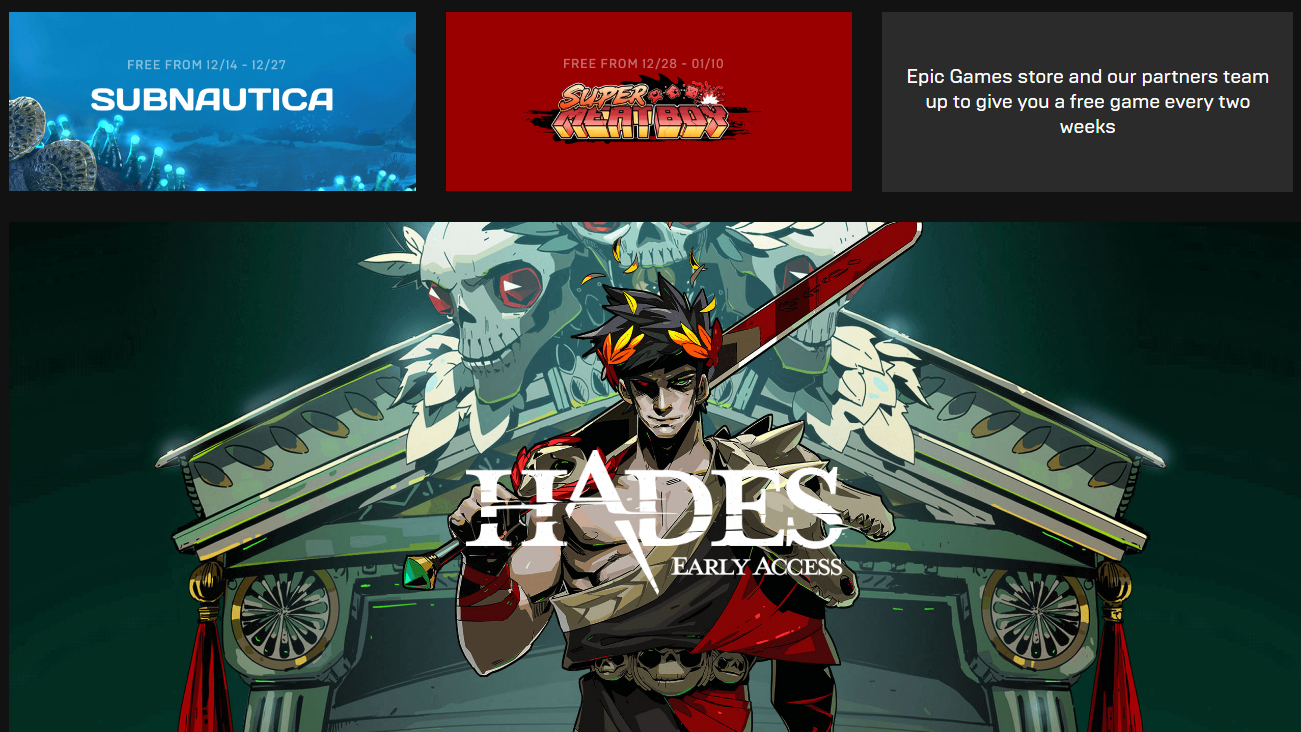Epic's Tim Sweeney reveals how the company lands exclusives for the Epic Store
Includes funding development of upcoming games.

Epic Games chief executive Tim Sweeney has confirmed that the company secures exclusives for the Epic Games Store using a combination of "marketing commitments, development funding, or revenue guarantees".
The subject of how Epic secured exclusives, which include Supergiant's Early Access combat game Hades, has been the subject of much debate, and Sweeney's clarification is certainly interesting. It's not clear whether Epic investing in a game's development gives it any sway over the content, or whether it will simply be a silent partner, but it suggests that the company is taking a far more direct interest in the games it sells than Valve does with Steam.
Revenue guarantees, if you're not familiar with the term, simply mean Epic will promise that a game sold on its store will generate a certain amount of income for a developer. If the game fails to meet that threshold, Epic will find a way to make up the difference.
"When lots of stores compete, the result is a combination of better prices for you, better deals for developers, and more investment in new content and innovation," he said on Reddit. "These exclusives don’t come to stores for free; they’re a result of some combination of marketing commitments, development funding, or revenue guarantees. This all helps developers."
Sweeney, responding to a Reddit user that said the Epic Store was "anti-consumer", argued that the store encouraged "healthy competition", and that the lower revenue cut that Epic takes from store sales compared to what Valve takes from sales on Steam—12% vs 30%—allows developers to make more games, which is ultimately good for consumers. "That’s an 18% difference, and most devs make WAY less than an 18% profit margin—so this can be the difference between being able to fund a new game and going bankrupt!"
He admitted that having to use more launchers was "annoying", but that it was worth it in the long run. "I get that it’s yet another launcher and if you have Steam installed you’d prefer to just use it. But if you want way better games to be built in the future, then please recognize what good this store can do."
He also confirmed on Twitter that Epic was working on on a review system for its store that would display user ratings on a game, providing the developer had opted in.
Keep up to date with the most important stories and the best deals, as picked by the PC Gamer team.
We’re working on a review system for the Epic Games store based on the existing one in the Unreal Engine marketplace. It will be opt-in by developers. We think this is best because review bombing and other gaming-the-system is a real problem.December 26, 2018
The original Reddit thread called the Epic Store "literal Spyware", and said that its terms of service meant Epic could share users' data with its parent company, which the original poster claimed was Tencent. In response, Sweeney said that Tencent was not Epic's parent company—it is a minority investor and doesn't have "any sort of access to our customer data".
"Epic does not share user data with Tencent or any other company. We don’t share it, sell it, or broker access to it for advertising like so many other companies do. I’m the founder and controlling shareholder of Epic and would never allow this to happen," he said.
He further explained that its parent company is US-based Epic Games Inc, and that the language around data sharing "exists because when you buy an Epic game in certain territories (like Europe), the seller of record is our local (e.g. European) subsidiary company for tax purposes, but the data is ultimately stored by Epic Games Inc".
Samuel Horti is a long-time freelance writer for PC Gamer based in the UK, who loves RPGs and making long lists of games he'll never have time to play.


